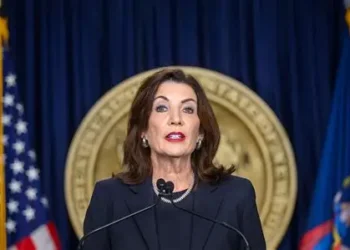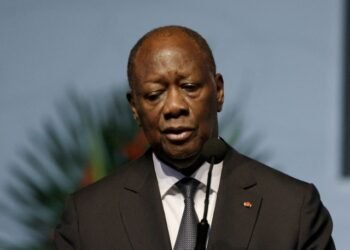A proposed migration agreement between the United Kingdom and France is drawing sharp criticism from five European Union countries, who warn it could burden their asylum systems and circumvent broader EU protocols.
British Prime Minister, Keir Starmer and French President, Emmanuel Macron are currently finalizing the deal, which would reportedly allow the UK to return migrants who arrive via small boats to France.
In exchange, Britain would accept asylum seekers who have existing family ties in the UK. While the arrangement is still under negotiation, early reports of the deal’s structure have prompted swift objections from Italy, Spain, Greece, Malta, and Cyprus.
The five countries, often the first point of entry for migrants reaching Europe through irregular routes, have written to the European Commission to voice their concerns.
Their letter questions both the process and potential consequences of a bilateral agreement negotiated outside a broader EU-UK migration framework.
“We take note – with a degree of surprise – of the reported intention of France to sign a bilateral readmission arrangement. If confirmed, such an initiative raises serious concerns for us, both procedurally and in terms of potential implications for other member states, particularly those of first entry.”
Excerpt of the letter to the EU
These nations are concerned that France might later use EU rules to redirect some of the migrants it accepts from the UK back to their first country of entry within the EU, particularly under the Dublin Regulation, which allows for such transfers.
Five States Raise Legal Concerns
The joint letter also stressed the importance of transparency, stating: “We believe it is essential to clarify whether the agreement may produce any direct or indirect consequences for other member states.”
Sources close to the negotiations have indicated that the agreement is intended to launch as a pilot scheme. UK officials argue that the current surge in Channel crossings justifies the urgency of action.
According to data from The Migration Observatory, around 14,800 migrants arrived in the UK via small boats from January to May 2025 — a record figure for this period and a 42% increase compared to the same timeframe in 2024.
As part of the agreement, French authorities have reportedly agreed to begin intercepting small boats even after they have entered the water, an apparent shift from their previous operational guidelines.
Traditionally, French police have not intervened once vessels are offshore, leaving British authorities to handle crossings in the Channel.
Home Secretary Yvette Cooper has welcomed France’s change in posture.
Nonetheless, the plan has sparked political debate within the UK. Shadow Home Secretary Chris Philp criticized the proposal, labelling it a “gimmick.”
“We pay the French half a billion pounds to wave the boats off from Calais, and in return we get a migrant merry-go-round where the same number still come here.”
Shadow Home Secretary Chris Philp
The timing of the UK-France summit, scheduled for early July in London, has added urgency to finalizing the deal. Diplomats on both sides have remained tight-lipped about the final terms, though officials suggest a formal announcement could be imminent.
Meanwhile, the European Commission has not yet issued a formal statement on the matter, though the letter from the five objecting nations has likely raised red flags within Brussels.
The move by Macron and Starmer to negotiate outside the broader EU context risks reviving tensions over how to manage Europe’s migration system, particularly in the wake of Brexit.
This latest episode underscores the continued political sensitivity surrounding immigration in both the UK and the EU.
It also highlights the complex web of responsibilities and expectations placed on border nations, many of whom feel left to shoulder disproportionate burdens in the absence of continent-wide consensus.
READ ALSO: Let the Nation Hear Her, Elvis Darko Defends Suspended Chief Justice



















